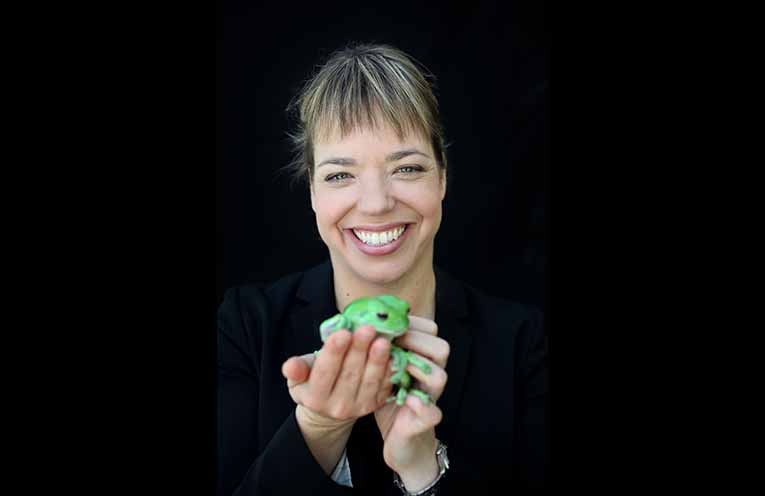THE Australian Museum’s FrogID Week is on, finishing at midnight on Sunday 16 November.
Australia’s biggest citizen science project and the world’s biggest frog count, FrogID Week encourages the public to make a meaningful contribution to scientific understanding of the world.
The free FrogID app enables anyone with a smartphone to record different frog species by the unique sounds they make.
These recordings provide data on the health of Australia’s frog populations and identify species that are at risk, to assist and inform conservation efforts.
To date the app has data on 1.3 million calls which has been instrumental in the scientific discovery of 13 new Australian frog species; including four of which were described as new to science in the past year.
Australian Museum Lead Scientist for FrogID Dr Jodi Rowley, Curator of Amphibian and Reptile Conservation Biology at the Australian Museum, has told News Of The Area what readers might get to see locally.
“The Coffs Coast is home to a huge diversity of frog species – over 40 species, including many rare and threatened species,” she said.
“The most commonly heard frogs in the area are the Eastern Dwarf Tree Frog (Litoria fallax, Drymomantis fallax), the Common Eastern Froglet (Crinia signifera) and the Striped Marsh Frog (Limnodynastes peronii).
“Frogs to keep your ear out for are the very small Wallum Froglet (Crinia tinnula), which can be heard chiming away from the tannin-soaked Wallum swamps on the coast.
“Up in the rainforests in the east, listen out for the deep grunt of the Giant Barred Frog (Mixophyes iteratus) or the squelch of the Sphagnum Frog (Philoria sphangnicola).”
In 2025, FrogID Week is also sharing simple ways for everyday Australians to become aware of their local frogs by encouraging more frog-friendly spaces.
Recent research shows that nine in 10 frog species are intolerant to human-modified environments.
Dr Rowley said making small changes to green spaces is one of the ways people can support local frogs.
“For this year’s FrogID Week we’re asking frog lovers across the country to channel their passion into their gardens and balconies by adding a simple water source, and planting native reeds, grasses, and small shrubs among rocks and logs to provide hiding spots and shelter.
“Creating my own frog-friendly backyard has been such a rewarding experience.
“Within a few months of establishing a frog pond, four species of frog moved into my backyard, all of which I recorded with the FrogID app of course.”
By Andrea FERRARI



